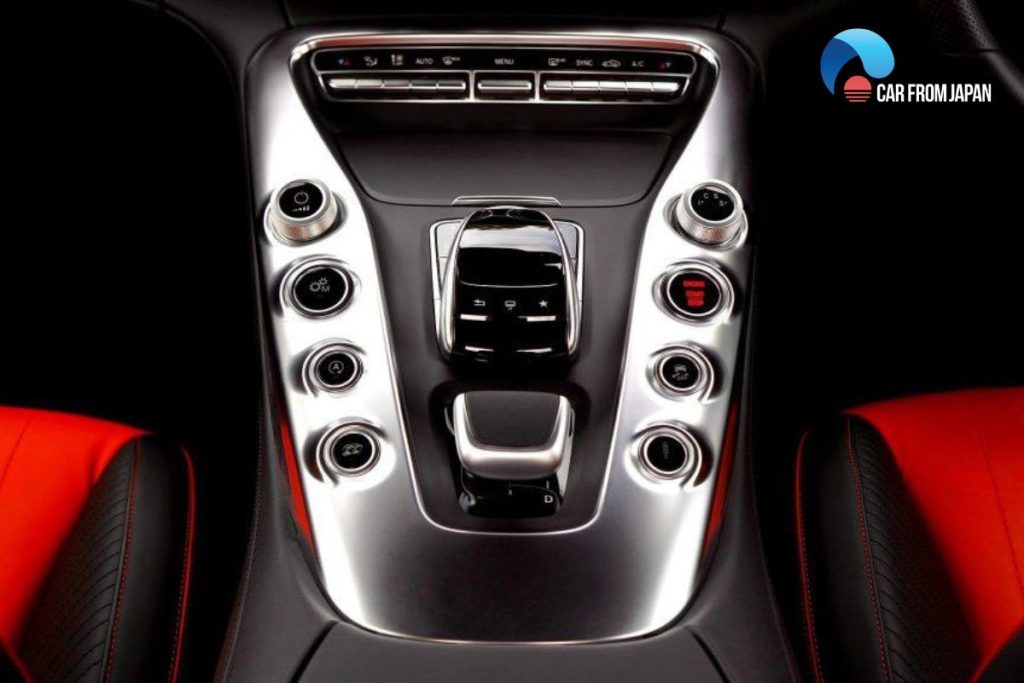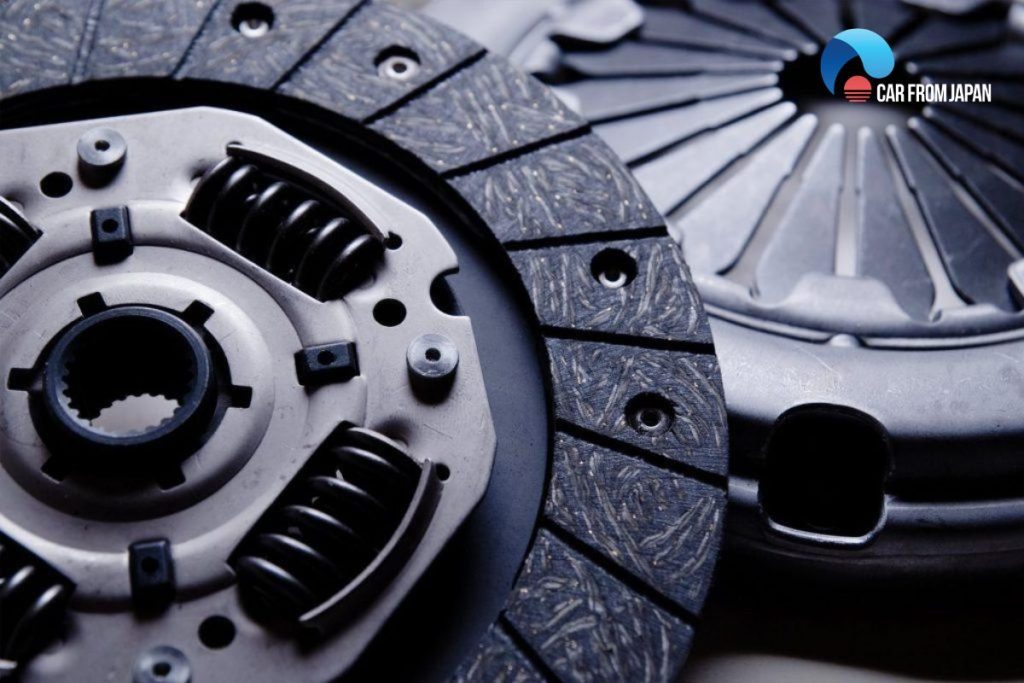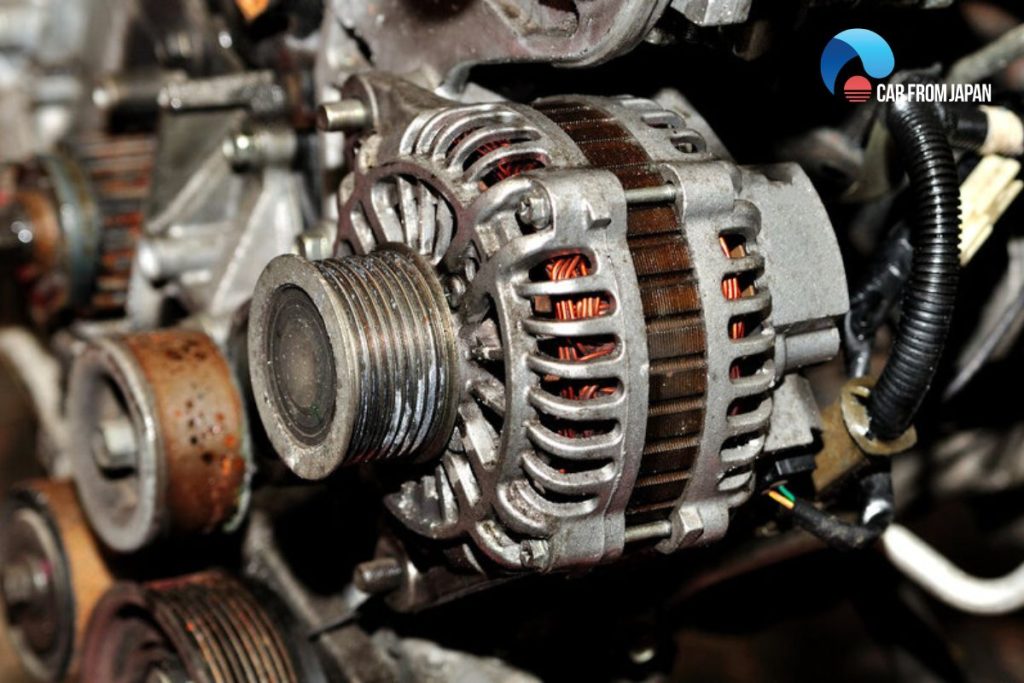Whining noise when accelerating is annoying and disturbing. Why does this happen and how to get rid of these sound?
With frequent use over time, many car components wear out and start showing issues. It’s not something that you can prevent but it is possible to diagnose the reason and having a fix before it becomes worse.
Here’s our take on how to deal with when your car makes unusual noise!
Contents
- Why Does A Car Make Whining Noise When Accelerating?
- What To Do To Avoid Whining Noise When Accelerating
- FAQs on Car Whining Noise
- Why does my car make a whining noise only when cold?
- Why does my car whine when I press the gas, but not in neutral?
- How to determine if car’s whining noise is coming from the transmission or the engine?
- Why does my car only whine in certain gears?
- Why does my car whine when I accelerate, but stop when I take my foot off the gas?
- Final Words
Why Does A Car Make Whining Noise When Accelerating?
A car that makes such a weird noise at the time of acceleration, will be fine at a set speed. It is actually challenging to find the root cause of whining sound when accelerating but these common causes will give you the heads-up.
Malfunctioned transmission
You should do a thorough transmission check-up when the car starts making a groaning sound when speeding up. The noise coming from the transmission can be caused by a low fluid, leaking oil, or a damaged transmission oil pump.
In addition, if the torque converter is damaged, it will also make a chirping sound. Bearing wear also frequently causes noise under the vehicle.
Low levels of fluid can cause all sorts of problems, and bizarre noises are the first to start with. Spotting this problem and refilling the fluid can save you plenty of money down the road.
On the other hand, if the noise does not begin unless the vehicle is in motion, there must be issues with one or more gears and bearings.
Planetary gear sets will create a whining sound when they are worn out but only when the car starts moving. Repair or change the gear components if they are damaged.

Faulty steering
A loose steering belt could be the culprit behind a whining noise when accelerating. When it happens, the sound will occur when you are turning the steering wheels. Tightening the belt will solve this issue.
The power steering system
A leak in the power steering system can start that annoying whining noise. If you discover drips under your car or a visible drop in the level of power steering fluid, there must be a leak.
Look into the steering rack or gear because these are the places where the leak is more likely to occur than in the pump.
You can replace the damaged or leaked parts and refill the fluid to fix the problem. The easy fix is to add a liquid stop-leak solution to the reservoir.
There are plenty of good-quality products in the market that offers a simple, quick, and inexpensive solution to replacing components. After adding the stop-leak mixture, fill up the reservoir with power steering fluid.
Read More: Find out the Causes of Grinding Sound When Braking
Engine problems
The rising noise in the car can indicate an engine problem too. The engine has a complicated mechanism and it is better to go to a mechanic for its diagnosis.
But, you should do that only after being sure that the trouble is with the engine, not with the transmission.
Shift the gear into the Neutral mode and crank the engine gently. If the noises seem to have a relation with the engine speed, the engine is in trouble.
If there is no sound when the car is not in gear, the engine is unlikely to be the source of the complication.
The clutch components
When you are driving a manual car, a whining sound means a completely different story. If it occurs when you press the clutch for gear shifting, the release bearing is likely to be damaged.
It will be a pilot bearing if the sound starts when the car begins to move and you release the clutch. In both cases, replacing the clutch is the only fix.
A manual transmission engages only when the car starts running or the gear is in Neutral mode with an engaged clutch.
So, it is likely to be a clutch problem when the vehicle is not moving in gear. You should check the transmission, especially the driveline or bearing, if the sound occurs when the car is in motion.

The torque converter
What automatic cars have as an alternative to the clutch is the torque converter. It rotates when the engine runs.
If the whining sound occurs when you shift the gear to the Reverse or Forward and it goes away after moving to the Neutral mode, the torque converter must be having a problem.
Low engine oil
The first thing you should check after hearing a loud whining noise is the engine oil.
A low level of fluid is the main reason for causing this trouble. The engine oil tank is located near the brake fluid reservoir. Use a dipstick to find out the correct level of oil.
A dipstick has two labels – ‘add’ and ‘full’. You should refill the tank if the oil level is below the ‘add’ mark.
There’s nothing to worry about if it is between the ‘add’ and ‘full’ labels. Detecting the signs at an early stage will save the car from severe engine damage.
Moreover, a whining noise that occurs when you start the car but fades as you drive is usually an oil problem.
Low oil pressure or insufficient oil levels can cause engine parts not to be properly lubricated, causing a squealing noise when starting or idling.
This noise may disappear as you accelerate because the oil circulates more efficiently at higher engine speeds.
Broken transmission belt
The purpose of the belt is to transmit power between different engine components. They work by friction between the belt and the pulley, which is why loose belts can cause different parts do not operate.
If the belt is damaged, other components may not work properly, the car may be difficult to start or won’t start at all, and the belt may “squeak”. Possible causes include cracking, wear or tear, liquid (oil) contamination, and poor belt tension.
Worn wheel bearings
In most cases, badly worn wheel bearings will make a loud noise when the driver is moving on the road. This noise usually changes as the vehicle accelerates. At high speeds, these sound like “whining”.
Obviously, there are quite many reasons causing a whining noise when your car accelerates, so be careful when diagnosing the reasons to have the most suitable solution to handle the problem.
Alternator problems
A bad alternator may be indicated by a constant whining noise coming from the engine compartment. When at fault, the alternator may have difficulty keeping up with the demands of converting mechanical energy into electrical energy, which powers the system.
In addition to whining, other symptoms may indicate a bad alternator. Dim or flickering headlights, especially noticeable at idle or low engine speeds, are a common sign.
If you experience any of these problems, see a qualified mechanic to check the alternator output and replace the faulty part.

What To Do To Avoid Whining Noise When Accelerating
To avoid a whining noise when accelerating, you need to pay attention to proper vehicle maintenance. Here are some ways to avoid whining noise problems when starting the car or during driving.
Check for leaks
Check for oil leaks under the car. Get any leaks fixed immediately at a reputable service facility.
Use quality oil and filters
Use the right type and quality of oil and a good filter. Avoid cheap or counterfeit products on the market.
Change oil regularly
Be sure to change oil at recommended intervals, and use the right type of oil and oil filter to ensure safety and performance.
Maintain the correct oil level
Check the oil level with the dipstick. If the oil level is low, refill with the correct type of oil.
Troubleshoot power steering problems
Check and add/replace the power steering fluid level and look for leaks. Have a professional mechanic check and diagnose.
Check other belts and pulleys
A worn timing belt, timing belt, or pulley can also make a whistling noise when accelerating. Replace if necessary.
Test the transmission
This task needs professional diagnosis and repairs.
Check the differential (AWD/4WD vehicles)
In all-wheel drive or all-wheel drive vehicles, a whistling noise when driving can be caused by a faulty differential. Have a mechanic check it to detect the problem early.
Here are some ways to prevent and avoid engine and vehicle problems when a car makes a whistling noise for your reference.
Learn more about how to fix the terrible whining noise in this video from 1ROAD!
FAQs on Car Whining Noise
Why does my car make a whining noise only when cold?
A whining noise when the engine is cold may be due to a loose or worn serpentine belt that contracts in colder temperatures, causing slippage.
Cold temperatures can temporarily affect fluid viscosity, leading to increased resistance in power steering or transmission components.
Why does my car whine when I press the gas, but not in neutral?
If the whining noise occurs when accelerating but disappears in neutral, the issue could be related to the transmission, differential, drivetrain components or a failing clutch (manual cars)
How to determine if car’s whining noise is coming from the transmission or the engine?
One way to diagnose this is to put the car in neutral and rev the engine. If the whining noise persists, it’s likely engine-related (e.g., belts, pulleys, or alternator).
If the noise disappears in neutral but returns when driving, it may be a transmission or drivetrain issue.
Why does my car only whine in certain gears?
If the whining noise happens in specific gears, it might be due to worn transmission bearings or planetary gear issues inside an automatic transmission.
Why does my car whine when I accelerate, but stop when I take my foot off the gas?
This behavior suggests a vacuum leak or worn drivetrain components like a differential or axle bearing.
It may also indicate issues with the torque converter in an automatic transmission.
Final Words
A car makes a whining noise when accelerating is an annoying and worrying sign. So quickly check components such as the power steering system, alternator, steering, clutch, transmission, differential, or bearings to pinpoint the exact source of the problem.
For more insightful Car maintenance tips, follow Car From Japan today!




Good tips